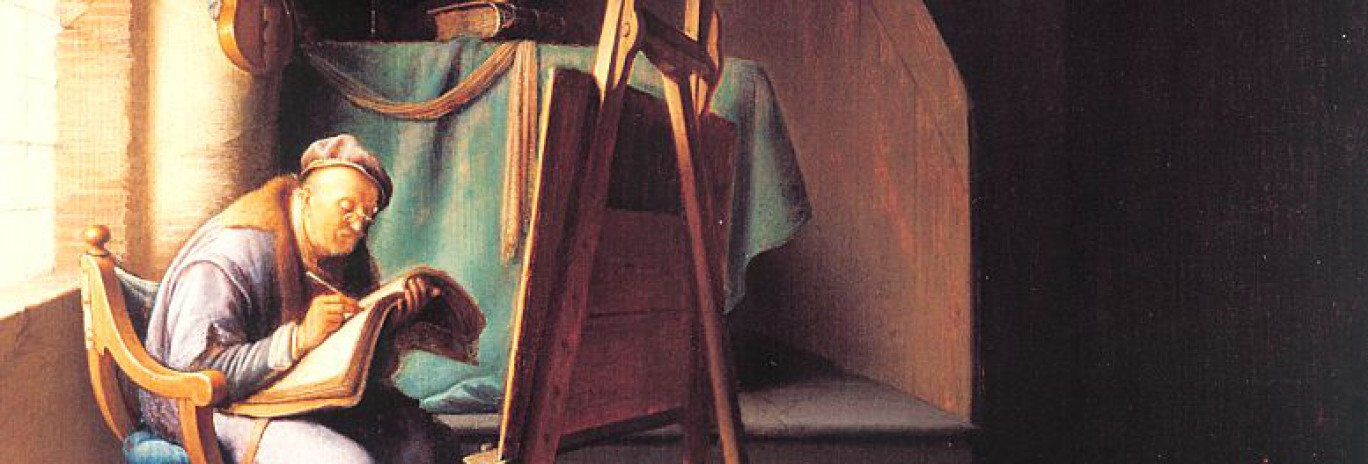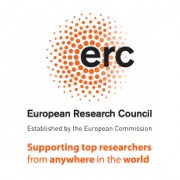Events
TECHNICAL ART HISTORY COLLOQUIUM – 19 December, Amsterdam
DOWNLOAD THE FULL INVITATION HERE
THE CONTINUED PRODUCTION OF SCROLLS, HANDWRITTEN BOOKS AND INSCRIPTIONS IN STONES
The Scriptorium Collective is an independent consortium of researchers, craftsmen and curators of university libraries concerned with the production, usage and research of religious books in the wider context of book cultures. The primary aim of the Scriptorium Collective is to bring together science and practical experience concerning the production, usage and study of these documents as found today. For more information, see: https://www.pthu.nl/scriptorium-collectief/.
In this colloquium, four masters of arts and crafts connected to the Scriptorium Collective will organise a workshop in their field of expertise: a calligrapher, a letter carver in stone, an illuminator and a book restoration expert. These artisans will provide an introduction to materials, techniques, production processes, design and function of the documents.
Workshop registration is required via stefanroye@hetnet.nl before 16 December 2019. There is limited space, so first come, first served. You can choose to partake in one of the four following workshops:
1. Inscriptions in Stone
During this workshop, letter carver Henk Welling will demonstrate the cutting of letters in stone with chisel and hammer in the context of ancient Roman inscriptions in stone. The workshop starts with a series of pictures to introduce you to the history and practical aspects of letter carving, choice and use of materials, techniques. This is followed with a demonstration and the participant will be invited for a personal try-out.
2. Gold Leaf in Manuscripts
During this workshop, illuminator Jaap Boerman will give an introduction to the art of working with gold leaf in documents of the Middle Ages. Boerman will demonstrate the particulars of this art and will guide participants step by step in order to learn the techniques of working with gold leaf for manuscript decoration and beautifying initials.
3. Ashkenazi Calligraphy (Hebrew)
During this workshop, sofer Shimon Koppenhol will give an introduction to the Hebrew Ashkenazi calligraphy. A Torah scroll (physical exemplar) will be demonstrated, with explanation about various materials for writing on parchment sheets, ink, pens, Tikkun (model), construction of the scroll (binding and wooden rollers), and the participant will learn the principles of handwriting in Jewish calligraphy script by practising some letter forms on parchment strip (kelaf). No foreknowledge is required.
4. Early codex structures
During this workshop, book conservation expert Herre de Vries will explain the formation of the upcoming early codex form, based on the example of the Nag Hammadi codices. De Vries will give a historical explanation with the help of pictures and various codex models and will demonstrate covers, binding techniques and quire constructions with regard to their usage in ancient times. Participants will then produce an adapted version of the Nag Hammadi codices in order to explore basic material properties of papyrus, parchment and leather.
The Technical Art History Colloquia are organised by Sven Dupré (Utrecht University and University of Amsterdam, PI ERC ARTECHNE), Arjan de Koomen (University of Amsterdam, Coordinator MA Technical Art History), Abbie Vandivere (University of Amsterdam, Coordinator MA Technical Art History & Paintings Conservator, Mauritshuis, The Hague), Erma Hermens (University of Amsterdam and Rijksmuseum) and Ann-Sophie Lehmann (University of Groningen). The Technical Art History Colloquia are a cooperation of the ARTECHNE Project (Utrecht University and University of Amsterdam), the Netherlands Institute for Conservation, Art and Science (NICAS), the University of Amsterdam and the Mauritshuis. The ARTECHNE project has received funding from the European Research Council (ERC) under the European Union’s Horizon 2020 research and innovation programme (grant agreement No 648718).


